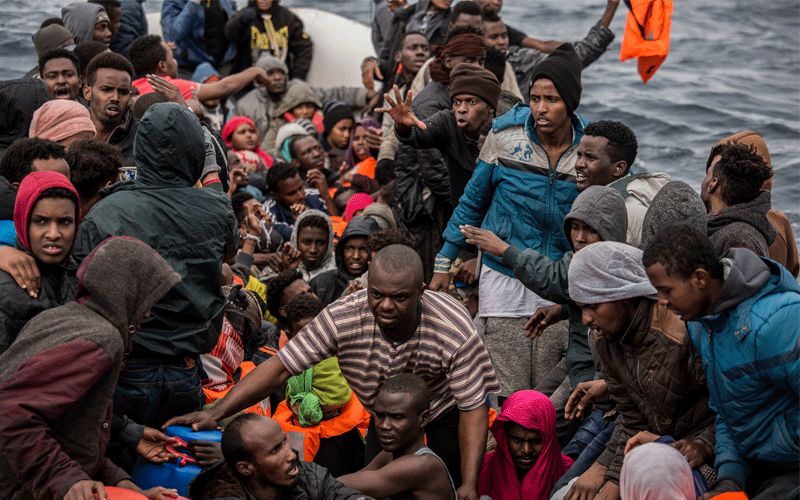“In late 2019 and early 2020, I visited Burkina Faso, Morocco and Côte d’Ivoire and saw and heard for myself the testimonies of young men and women who risked all to be able to support their families back home, who swore that they would not leave the Spanish border area until they found their opportunity to cross it, who thanked local parishes for the welcome and safety extended to them, young unaccompanied children who were keenly aware that their parents sent them on these journeys as the way to keep them alive,” he narrated.
The human rights official who has helped resettle Ethiopian, Eritrean refugees and those from other countries to the United States in his former position as Director of the multi-service Catholic Charities Agency further urged, “All governments, including those from Africa, have a responsibility to ensure dignified living conditions, freedom, and safety to their citizens or to any who live within their borders.”
Msgr. Vitillo said many African migrants always embarked on a perilous journey when they chose to traverse the Sahara and seas in desperate attempts to reach America or Europe.
He quoted a report, entitled, ‘On this journey, no one cares if you live or die,’ released in July 2020 by the United Nations High Commissioner for Refugees (UNHCR), which has estimated that some 1,750 refugees and migrants lost their lives in the Mediterranean Sea and in the Sahara Desert during 2018 and 2019 alone.
“Pope Francis consistently has called attention to such tragedies, especially since his visit to Lampedusa, shortly after his election as Pope, when he laid a wreath to honor the memories of those buried in this vast “cemetery,” and during his annual Masses to commemorate that historic visit,” the ICMC official said.
The widely published researcher on human rights, HIV/AIDS and global health, migration and refugee settlement said that of the 79.5 million forcibly displaced people in the world today, some 26 million are refugees, that is, they are people who have fled war, violence, conflict or persecution and have crossed an international border to find safety in another country.
The rest, he said, are internally displaced people who have stayed within the borders of their respective countries of origin but often are deprived of the special protection available to refugees.
“In Africa, there are some 6 million refugees and 12.5 million internally displaced persons,” he said, affirming that much of the migration happens in Africa and from Africa, so much so that the continent has been described as “a continent on the move.”
He further said that forcibly displaced persons fear for the safety and future of themselves and of their children, adding, “They desperately want to enjoy their God-given dignity and to escape the horrors of persecution, conflict, and threats to personal safety.”
Msgr. Vitillo who has served as Head of the Caritas Internationalis Delegation to the UN Geneva urged Europe and America to open their doors to African migrants and not to look at immigrants as a “shared burden.”








